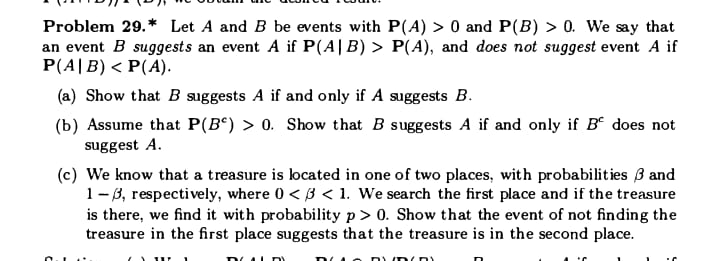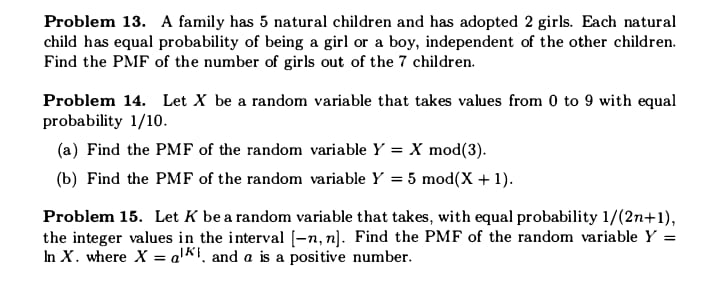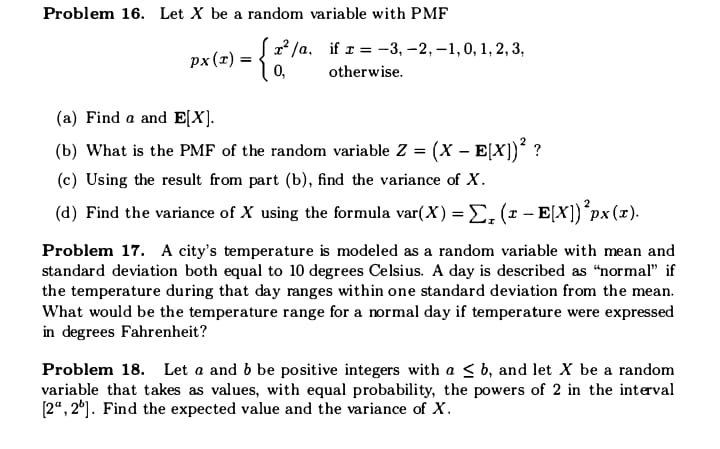Problem 29.* Let A and B be events with P(A) > 0 and P(B) > 0. We say that an event B suggests an event A if P(A| B) > P(A), and does not suggest event A if P(A| B) 0. Show that B suggests A if and only if B" does not suggest A. (c) We know that a treasure is located in one of two places, with probabilities / and 1 - , respectively, where 0 0. Show that the event of not finding the treasure in the first place suggests that the treasure is in the second place.Problem 12.* Justification of the Poisson approximation property. Con- sider the PMF of a binomial random variable with parameters n and p. Show that asymptotically, as n - 00, p - 0. while np is fixed at a given value A, this PMF approaches the PMF of a Poisson random variable with parameter A.Problem 13. A family has 5 natural children and has adopted 2 girls. Each natural child has equal probability of being a girl or a boy, independent of the other children. Find the PMF of the number of girls out of the 7 children. Problem 14. Let X be a random variable that takes values from 0 to 9 with equal probability 1/10. (a) Find the PMF of the random variable Y = X mod(3). (b) Find the PMF of the random variable Y = 5 mod(X + 1). Problem 15. Let K be a random variable that takes, with equal probability 1/(2n+1), the integer values in the interval [-n, n). Find the PMF of the random variable Y = In X. where X = all. and a is a positive number.Problem 16. Let X be a random variable with PMF px (I) = x /a. if I = -3, -2, -1, 0, 1,2,3, 10, otherwise. (a) Find a and E[X]. (b) What is the PMF of the random variable Z = (X - E[X])? ? (c) Using the result from part (b), find the variance of X. (d) Find the variance of X using the formula var(X ) = ). (x - E[X]) 'px (x). Problem 17. A city's temperature is modeled as a random variable with mean and standard deviation both equal to 10 degrees Celsius. A day is described as "normal" if the temperature during that day ranges within one standard deviation from the mean. What would be the temperature range for a normal day if temperature were expressed in degrees Fahrenheit? Problem 18. Let a and b be positive integers with a _ b, and let X be a random variable that takes as values, with equal probability, the powers of 2 in the interval [2", 2']. Find the expected value and the variance of X.Problem 28.* The quiz problem. Consider a quiz contest where a person is given a list of n questions and can answer these questions in any order he or she chooses. Question i will be answered correctly with probability pi. and the person will then receive a reward vi. At the first incorrect answer, the quiz terminates and the person is allowed to keep his or her previous rewards. The problem is to choose the ordering of questions so as to maximize the expected value of the total reward obtained. Show that it is optimal to answer questions in a nonincreasing order of piti/ (1 - p.)











